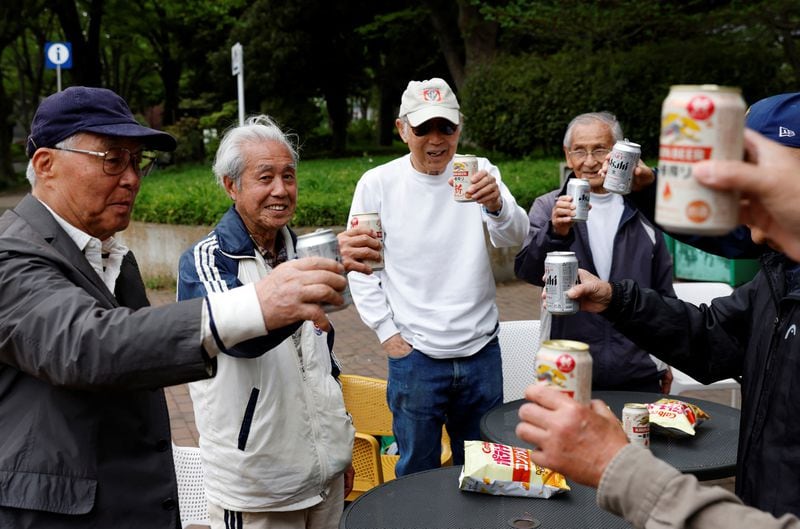The new 80+ division of Tokyo’s “Soccer For Life” league played its first game this month.
Mutsuhiko Nomura’s football career spans 18 World Cups, or 70 years to be exact.
Now, the gray-haired former Japanese national team player is a member of the Tokyo League’s new Over-80 division “Soccer For Life” (SFL), which played its first game this month.
The fiery 83-year-old and his teammates are among a growing number of older people pushing the boundaries of active life in Japan, one of the fastest aging societies in the world.
“When I was growing up, men in their 50s and 60s were considered ‘grandfathers,'” Nomura, already a member of several amateur teams, said after a pre-season practice game in February.

“And now we’re all still there at 80. It’s shocking.”
As average life expectancy in Japan increases, people aged 65 and over make up nearly a third of its population of 126 million, with life expectancy now at 85 ranking among the highest in the world. .
It has also led to societal changes: around a fifth of people over 70 are employed and the government is encouraging pensioners to start withdrawing later, promising larger deferred payments.
Security guards and older shopkeepers have become commonplace.
“I think the formation of the 80-year-old division is a reflection of what we see in Japanese society, where the senior demographic can be active in this way,” said Yutaka Ito, general secretary of the SFL league. .

Only two decades ago, Tokyo created a division for the age group up to 60. In 2012, it was followed by the 70 division and five years later by the 75 category. At this rate, the 80 category was only a matter of time.
Example to follow
If his more ‘mature’ teammates are to be believed, Nomura could easily have another decade on the pitch: the oldest player, Shingo Shiozawa, is 93.
“If I hadn’t played football, I would have already died,” said the former racing car designer, who plays goalkeeper.
He credits sports for motivating him to quit smoking and speed up his recovery from treatment for spinal stenosis.

Sin embargo, con una edad average de 83 años y medio, la rigidez de la espalda, el crujido de las rodillas y la respiración dificultosa se mostraron a menudo cuando los jugadores de los tres equipos de la SFL jugaron los partidos inaugurales bajo un sol abrasador last Wednesday.
A ball pushed forward by a player failed to reach his slow teammate, while some stumbled and staggered on the pitch. A breathless 89-year-old asked to be substituted 10 minutes into a match, unable to play the remainder of the 15-minute half.

After the match, Nomura and his teammates toasted their beer can prowess, in a ritual familiar to many young players.
Despite decades of watching Nomura play football, his wife, Junko, says she doesn’t worry about injuries, just his high blood pressure, which she records daily in a diary, along with his activities and of his meals.
“He likes to eat meat, so I try to get him to eat vegetables,” he said of Nomura, who started playing football in high school and won the national tournament three times in the university.
“I think football is the best for your health.”

Far from slowing down, Nomura has also made a habit of playing ball with his daughter and granddaughter on the weekends, teaching them tricks and fostering their love of the game.
“Sometimes I go to watch the greats play and I feel like I have to work hard,” said her 48-year-old daughter Yuriko.
“I really look up to him. I hope to be like him and keep playing when I grow up.”
Source: Latercera
I am David Jack and I have been working in the news industry for over 10 years. As an experienced journalist, I specialize in covering sports news with a focus on golf. My articles have been published by some of the most respected publications in the world including The New York Times and Sports Illustrated.


